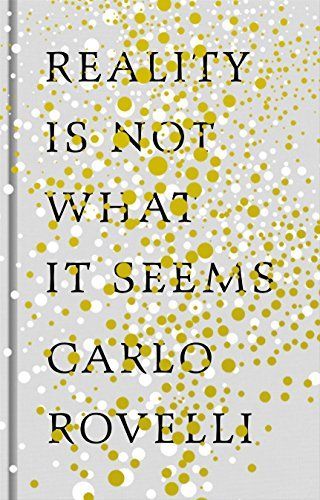
Reality Is Not What It Seems
From the bestselling author of Seven Brief Lessons on Physics comes a new book about the mind-bending nature of the universe Do space and time truly exist? What is reality made of? Can we understand its deep texture? Scientist Carlo Rovelli has spent his whole life exploring these questions and pushing the boundaries of what we know. In this mind-expanding book, he shows how our understanding of reality has changed throughout centuries, from Democritus to loop quantum gravity. Taking us on a wondrous journey, he invites us to imagine a whole new world where black holes are waiting to explode, spacetime is made up of grains, and infinity does not exist -- a vast universe still largely undiscovered.
Reviews
Guy Moorhouse@futurefabric
Daniel Waterhouse@wanderingvc
Artas Bartas@artas
bella <3@bellaheart
Liam Holbrook@lehol
Johnny Noble@johnnydecimal
Jürgen Schweizer@t3rtium
Hooman Rostami@hooman
Gabriella Lanouette@developergab
Matthew Jackson@matthewbeta
Sasuga@nigar00
Yihui@yihui
Tuago@iagomr
Jimmy Cerone@jrcii
Andrei Leica@leicaandrei
Caterina P.@ourbookishnotes
Magnus Hambleton@mangoham
Sasuga@nigar00
Dave Perkins@tallyhoooooo
James Ewen@jimbobjimpants
Nicholas Christowitz@wideopenspace
Jon Noronha@thatsjonsense
Yihui@yihui
Gabriella Lanouette@developergab
Highlights
Ivy Chen@ivavay